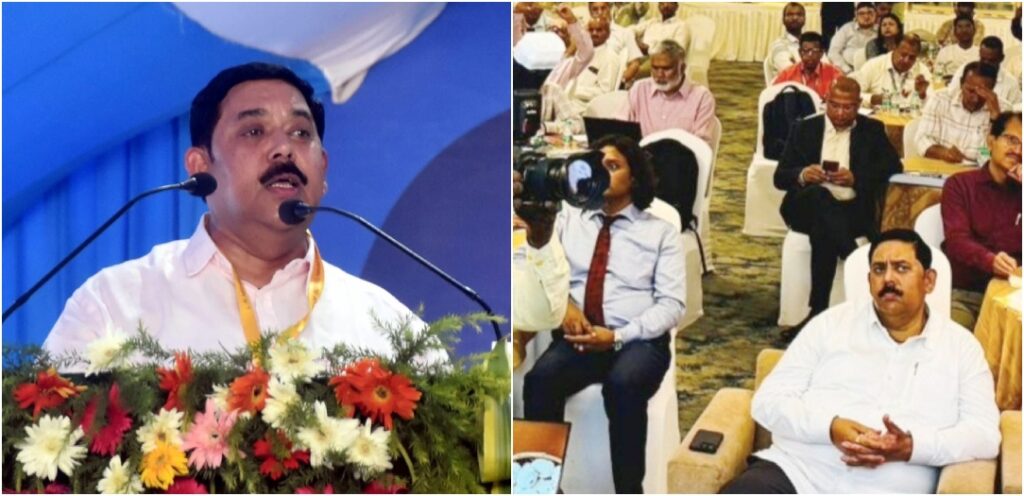BRABU Vice Chancellor Dinesh Chandra Rai Champions Makhana Innovation at National Symposium in Patna

Patna: A national symposium held in Patna today spotlighted the potential of makhana (fox nuts) as a transformative force for rural development in Bihar, bringing together scientists, farmers, policymakers and industry leaders to explore innovations in processing and value addition.
Hosted at the Lemon Tree Premier hotel, the National Symposium on Makhana Processing and Value Addition underscored Bihar’s central role in the cultivation of makhana, which accounts for 90% of India’s production. The event was jointly organised by the Bihar Agricultural Science Academy, Dr. Rajendra Prasad Central Agricultural University (RPCAU), the Agricultural Economics Research Association, and the International Food Policy Research Institute (IFPRI).
Chairing the key technical session was Prof Dinesh Chandra Rai, Vice Chancellor of Babasaheb Bhimrao Ambedkar Bihar University (BRABU) and a noted expert in food technology. Prof Rai has earned national recognition for his work in sustainable food innovation, including nutrient-rich millet-based products and healthier versions of traditional Indian snacks.
Addressing delegates, Prof Rai described makhana as both “a cultural and economic treasure for Bihar,” and praised the recent announcement of a Makhana Board in the Union Budget 2025 as a potential game-changer. “This Board will empower farmers with improved seeds, advanced techniques, and better processing infrastructure,” he said.
The symposium’s technical session explored automated roasting, vacuum packaging, and the development of makhana-based products including gluten-free flour and high-protein health bars. Emphasising the crop’s nutritional value—rich in protein, fibre and antioxidants—Prof Rai positioned makhana as a contender in the global superfood market.
He also linked the crop’s potential to broader national and international nutrition goals, including India’s Poshan Mission and the global MIIRA initiative on nutri-cereals.
Despite its promise, challenges remain. Participants identified low yields—1.7 to 1.9 tonnes per hectare, compared to a potential 3.5 tonnes—and limited infrastructure as major barriers. Prof Rai stressed that the proposed Makhana Board must support marginalised farming communities, including the Mallah community, by providing training and access to export markets.
With Bihar heading into elections, the symposium took on added political weight, signalling the strategic importance of makhana in both economic and electoral agendas.
The BRABU community lauded Prof Rai’s leadership and scientific contributions, congratulating him on his role in shaping the future of makhana-based innovation.





